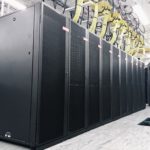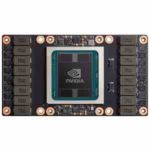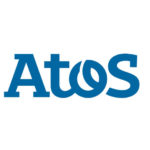OCF in the UK has deployed a new supercomputer at the University of Southampton. Named Iridis 5, the 1.3 Petaflop system will support research demanding traditional HPC as well as projects requiring large scale deep storage, big data analytics, web platforms for bioinformatics, and AI services. “We’ve had early access to Iridis 5 and it’s substantially bigger and faster than its previous iteration – it’s well ahead of any other in use at any University across the UK for the types of calculations we’re doing.”
Lenovo ThinkSystem Servers Power 1.3 Petaflop Supercomputer at University of Southampton
For HPC and Deep Learning, GPUs are here to stay
In this special guest feature from Scientific Computing World, David Yip, HPC and Storage Business Development at OCF, provides his take on the place of GPU technology in HPC. “Using GPUs in the HPC datacenter in place of CPUs can dramatically increase the power requirements needed, but if your computational performance goes through the roof, then I’d argue it’s a trade-off worth making.”
OCF DATA to sell Bullion High-end Servers
Today Atos announced it has signed a channel partner agreement with OCF DATA Limited to resell Atos Bullion servers. OCF will sell the Bullion devices to higher education, manufacturing, and utilities sectors in the UK.
OCF Builds Isca Supercomputer for Life Sciences at University of Exeter
Researchers from across the University of Exeter can now benefit from a new HPC machine – Isca – that was configured and integrated by OCF to give the university a larger capacity for computational research. “We’ve seen in the last few years a real growth in interest in High-Performance Computing from life sciences, particularly with the availability of new high-fidelity genome sequencers, which have heavy compute requirements, and that demand will keep going up.”
What Lies Ahead for HPC Cooling?
“To meet the ambitious targets for exascale computing, many cooling companies are exploring optimizations and innovative methods that will redefine cooling architectures for the next generation of HPC systems. Here, some of the prominent cooling technology providers give their views on the current state and future prospects of cooling technology in HPC.”
OCF Deploys 600 Teraflop Cluster at University of Bristol
OCF in the UK has deployed a new 600 teraflop supercomputer at the University of Bristol. Designed, integrated, and configured by OCF, the system is the largest of any UK university by core count. “Early benchmarking is showing that the new system is three times faster than our previous cluster.”
OCF Builds POWER8 Supercomputer for Atomic Weapons Establishment in the UK
High Performance Computing integrator OCF is supporting scientific research at the UK Atomic Weapons Establishment (AWE), with the design, testing and implementation of a new HPC cluster and a separate big data storage system. “The new HPC system is built on IBM’s POWER8 architecture and a separate parallel file system, called Cedar 3, built on IBM Spectrum Scale. In early benchmark testing, Cedar 3 is operating 10 times faster than the previous high-performance storage system at AWE. Both server and storage systems use IBM Spectrum Protect for data backup and recovery.”
OCF in the UK Adopts Iceotope Liquid Cooling Technology
“Iceotope’s novel approach to liquid cooling allows us to deliver compute capability for customers with environments outside the traditional air cooled datacentre – for example a factory shop floor or an office environment where standard servers are too noisy,” said Steve Reynolds, sales director at OCF. “Our partnership with Iceotope enables us to provide an alternative and innovative solution for our customers.”
Moving to Exascale – Closer Than We Think?
“Back in 2013 I wrote the following blog expressing my opinion that I doubted we would reach Exascale before 2020. However, recently it was announced that the world’s first Exascale supercomputer prototype will be ready by the end of 2017 (recently pushed back to early 2018), created by the Chinese. I did some digging and wanted to share my thoughts on the news.”











